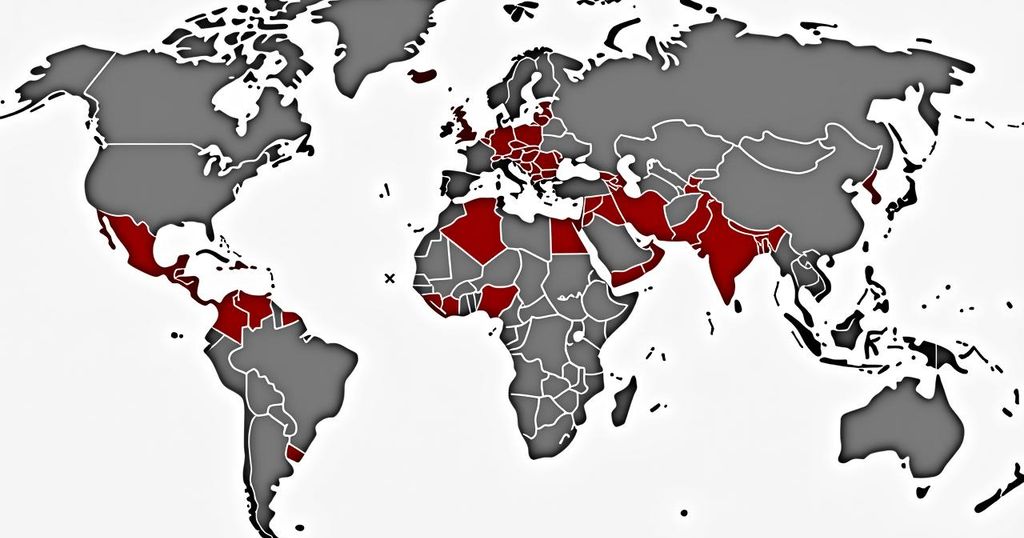Global Surge in Mpox Cases: Understanding the Emerging Threats
Mpox cases have surged internationally, with countries like Sweden, Thailand, the Philippines, and Pakistan reporting new instances linked to a potentially more severe variant. The WHO has declared mpox a public health emergency, emphasizing readiness to monitor and contain the virus, particularly concerning the new Clade 1 variant spreading primarily from Africa.
As mpox, formerly known as monkeypox, continues to spread internationally, reports indicate new cases emerging beyond Africa. Recently, countries including Sweden, Thailand, the Philippines, and Pakistan have confirmed cases of mpox, associated with a potentially more deadly variant. While the World Health Organization (WHO) has categorized mpox as a public health emergency of international concern, it emphasizes that mpox does not equate to a new COVID-19 pandemic, despite raising alerts through two declarations in two years. The current outbreak is attributed to the Clade 1 variant, recognized for its heightened transmission risk, notably through skin-to-skin contact. Initial outbreaks were documented in several African nations, with the Democratic Republic of the Congo (DRC) reporting the highest incidence. A new strain, Clade 1b, has recently emerged, further complicating the situation as nations like Kenya, Rwanda, and Uganda start to identify cases. In Africa, as of August 2023, fourteen countries have confirmed mpox cases. The DRC is experiencing a severe outbreak, home to 96% of reported cases in Africa. While the Clade 2 variant, known to be milder and previously spread through sexual contact, caused significant outbreaks in 2022 and was officially declared over in May 2023, sporadic cases continue to arise in various regions. In Asia, the first detection of Clade 1b occurred in Thailand, linked to a traveler returning from Africa, while the Philippines has noted cases attributed to the milder Clade 2 variant. In Europe, Sweden has reported one confirmed case of the Clade 1 variant. Current health agencies advise vigilant monitoring and prompt reporting to contain potential spread, though regions such as the Americas, Oceania, and the Middle East have registered no new cases of Clade 1.
Mpox, a viral disease historically confined to certain regions, has garnered global attention due to an alarming rise in cases outside Africa. Originating in the DRC, the disease has manifested since 2022 within the continent, leading to numerous confirmed cases. The current strains identified include Clade 1, which presents a greater threat than past strains due to its ability to spread more easily through close contact. The WHO’s recent emphasis on rapid diagnosis and contact tracing is a critical response to the ongoing international health crisis stemming from mpox, particularly with the emergence of new variants and overarching concerns regarding public health security.
In summary, the mpox outbreak is evolving, with countries outside Africa reporting cases of both Clade 1 and Clade 2 variants. The WHO’s designation of a public health emergency underscores the seriousness of the situation, urging countries to remain vigilant against this viral threat. Efforts to identify and control spread remain paramount, particularly in regions with reported infections. The continued emergence of cases is a call to action for global health authorities to reinforce monitoring and response strategies in collaboration with affected nations.
Original Source: www.aljazeera.com




Post Comment